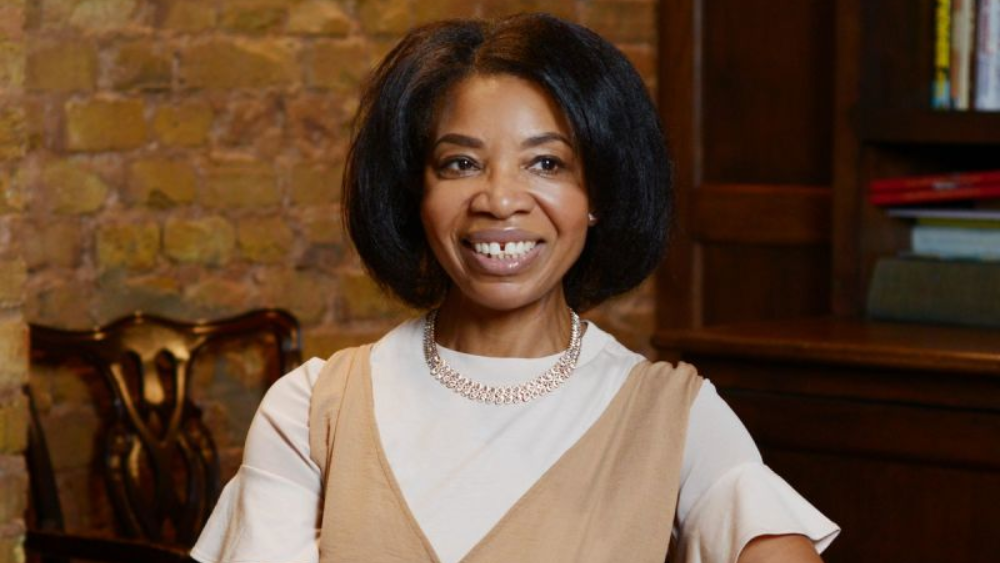'This week I’ve been on breakfast television, on Sky News, and we spent all of yesterday rehearsing at the Abbey.' Even by the standards of trailblazing composer, conductor and cultural activist Shirley J. Thompson OBE, it has been a hectic time. When we speak over Zoom, only days remain until the Coronation of King Charles III, an event in which she features as one of twelve newly-commissioned composers, and she is thrilled to be involved. 'It’s just a colossal honour to be invited, and to be specially commissioned by King Charles. I had absolutely no idea that I would be in the frame, so it came as a complete and utter surprise. I feel very blessed and have enjoyed creating music for the King immensely.'
The brief was both specific to the occasion and personal to the monarch: a new orchestral response to Charles’ favourite hymn, Be Thou My Vision, to be performed by the specially-formed Coronation Orchestra and conducted by Sir Antonio Pappano during the ceremony. A popular choice at weddings and funerals, it’s a melody familiar to many. 'We sang it at school and we sang it at church,' says Shirley, recalling her childhood in east London, 'It’s a hymn that everybody knows, and it’s part of the church tradition that I’m from, and continue to be a part of.'
Less conventional is the collaborative nature of the commission. Billed as a Triptych, the first two sections of the work will be written by two other British composers: Nigel Hess (best known for his television, theatre and film soundtracks), and Roderick Williams, an operatic baritone whose talents extend to orchestral and choral works.
'The words, ‘Be thou my vision’, are inspirational, in that they suggest he is asking a higher power, God, to be his vision, and to lead through him, as a vessel for God’s work.'
The three components will form a seamless whole, each with different characteristics. As befits the occasion, Thompson’s section – the third and final – will be a rousing fanfare. 'I’ve interpreted the hymn in a way that will make it even more celebratory, in accordance with the ceremony. It’s really quite triumphant.' Triumphant, yet also humble in a spiritual sense, says Thompson, reflecting on the message of the sung text: 'I think this choice of hymn shows the humility of King Charles III. The words, "Be thou my vision", are inspirational, in that they suggest he is asking a higher power, God, to be his vision, and to lead through him, as a vessel for God’s work.'
It’s not the first time Shirley has composed music to be performed at Westminster Abbey, or for a Royal audience. Born in east London to Jamaican parents who came to the UK in the late ‘50s, in 2018 she was commissioned to write what she describes as 'An Anthem to commemorate the very first Windrush Day on 22 June and to celebrate the so-called Windrush Generation' in a service at the Abbey, commemorating the 70th anniversary of the ship’s landing. The Anthem, A Psalm to Windrush: for the Brave and Ingenious (SATB) has since been performed on several occasions, including the Unveiling of the Windrush Monument, with Prince William in attendance, at Waterloo Station.
An anthem also features in her largest-scale work to date, New Nation Rising: A 21st Century Symphony (2002). Commissioned to mark the Golden Jubilee of Elizabeth II, it features a full orchestra and chorus, and was first performed at the opening of the Stratford Cultural Quarter, and subsequently for the Queen as part of her nationwide Golden Jubilee tour. New Nation Rising depicts the life of the capital city over the last 1000 years, from pastoral idyll to the Industrial Revolution, reflecting on World Wars I and II and finally turning into a celebration of London as a cultural melting-pot. If this narrative arc sounds familiar, there could be a good reason: it provided the now famous narrative outline for the Opening Ceremony of the 2012 Olympics. More broadly, explains Shirley, 'It was also inspired by the five-part structure and ethos of Beethoven’s 9th Symphony.'
'In my work as a cultural activist, I have always been involved in trying to get classical music, including my operatic work, into spaces where it’s not usually performed.'
The classical canon is only one among many musical influences that Shirley draws on in her music, and she actively resists the temptation to talk about musical genres – and classical music in particular – as an isolated art form. 'For me, there has only ever been good music, or less good music. Even when I went to study at university, I wasn’t aware that I was going to study "classical" music as such. I try not to distinguish too much between different styles – I personally listen to all kinds of music, and it’s always about the quality.'
This universal approach informs Shirley’s own music, which she describes as 'consciously public-facing'. 'My conservatoire training seemed to shun the public and strongly directed us to follow the practices of the so-called Modernist composers, from Schoenberg and the Second Viennese school, to the increasing complexities and atonal sound-world of composers such as Birtwistle. In my work as a cultural activist, I have always been involved in trying to get classical music, including my operatic work, into spaces where it’s not usually performed.' In this sense, the Coronation represents a huge opportunity to reach new audiences: 'We hear so much orchestral music in television and film, and other mass-mediated experiences, and I think people are curious about it. They might not have access to orchestral music in the same way as those of us who specialise in it, so this is the most wonderful platform for what we do.'
Thompson is keen to acknowledge the musical ecosystem that fostered the specialised skills for her career, ranging from musical tuition at school, to singing in her local church choir and leading her local Youth Symphony Orchestra in Newham. Reflecting on the path her career has taken, she says: 'I wouldn’t have had any of these opportunities had I not gone through all of that. It was so formative: we had the Stratford Music Festival, and a musical life that was very rich.'
'There’s a point where music goes beyond its stylistic boundaries and becomes music that is shared, as a shared experience. It becomes about our universal experience as humanity.'
It seems all the more salient in the context of cuts to local music services, national and regional opera companies, and the nation’s musical life in general, that Shirley, a direct beneficiary of those services, has been commissioned for such a prominent occasion. Whether that talent pipeline will still exist, and the UK continues to produce world-class composers in the years to come, remains to be seen.
What is undeniable is that by being commissioned to mark the Coronation in 2023, Shirley joins a great musical tradition that stretches back centuries. For the crowning of Queen Elizabeth II in 1953, the order of service reads like a who’s-who of 20th-century British composers, with premieres by Herbert Howells, William Walton and Ralph Vaughan Williams, alongside popular works by Elgar and Parry.
Thompson is encouraged by the prominence of music, and the role that musicians of all different backgrounds will play in the forthcoming ceremony. 'There’s a point where music goes beyond its stylistic boundaries and becomes music that is shared, as a shared experience. It becomes about our universal experience as humanity.' As the world prepares to mark the reign of Charles III, where there is music, it seems, there is always cause for hope.





